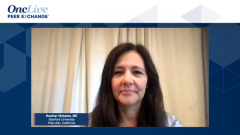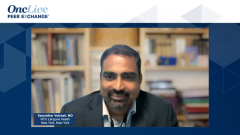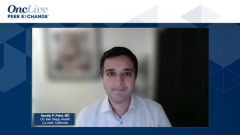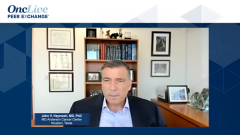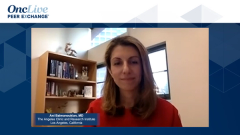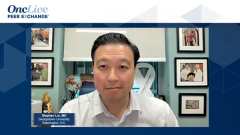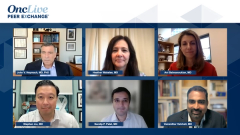
Role of Immunotherapy in Early Stage NSCLC Treatment
Dr Heather Wakelee reviews results from the IMpower110 study for first-line metastatic NSCLC treatment.
Episodes in this series

John V. Heymach, MD, PhD: There’s been an important development in the field. We’ve just spent this whole session talking about metastatic disease, but for early stage disease, on the order of half the patients still recur, and there are no approved immunotherapy agents in the neoadjuvant or adjuvant setting. Heather, do you want to briefly tell us about the IMpower110 results and the results of that exciting study?
Heather Wakelee, MD: Sure, absolutely. We initially presented the data at ASCO [American Society of Clinical Oncology Annual Meeting], so this was a randomized phase 3 global trial looking at adjuvant atezolizumab for patients who had had complete surgical resection and then had chemotherapy, so chemotherapy was a mandated part of the study. We had a complicated statistical analysis plan, but the first group was stage II/IIIA, who had PD-L1 expression of at least 1%. The hazard ratio there was 0.66 for disease-free survival [DFS]. When we took out those with PD-L1 expression, the hazard ratio shrunk, still statistically significant, but…the benefit is all in patients who have PD-L1 expression. Also, in that subgroup, the atezolizumab is quite effective, especially in those with greater than 50% expression.
We’re still doing analysis. When we bring in all comers, which includes the 12% of patients who have stage IB disease, we haven’t had enough events to say 1 way or the other statistically and haven’t had enough events for overall survival. We had some updates at World Conference on Lung Cancer looking at the chemotherapy regimens and surgical outcomes and then at ESMO [European Society for Medical Oncology Congress] looking at some of the other PD-L1 expression that just got published in The Lancet. This was a strong DFS benefit. With immunotherapy, I’m very hopeful that that’s going to translate into overall survival benefit. We also know that there are many other adjuvant I/O [immuno-oncology] trials that we’re going to be hearing about shortly. We haven’t yet, so we’ll see how that fits together.
John V. Heymach, MD, PhD: Stay tuned because it looks unquestionable that immunotherapy will be part of how we treat early stage patients. I’m looking forward to how this plays out.
Transcript Edited for Clarity


